Geography
Geography - Statement of Curriculum Intent
‘You can travel the seas, poles and deserts and see nothing. To really understand the world, you need to get under the skin of the people and places. In other words, learn about geography. I can’t imagine a subject more relevant in schools. We’d all be lost without it’ - Michael Palin.
At All Cannings School, our ambition is that all children are geographers. In this ever-changing world, the study of geography will deepen their knowledge of the places and people across the globe and develop a curiosity that encourages them to explore, ask questions and undertake new experiences both now and in the future.
The geography curriculum has been carefully crafted so that our children develop both geographical knowledge and skills. Children will learn to collect and analyse data, interpret geographical information such as maps and photographs and communicate their findings. We are committed to providing children with opportunities to apply these skills through investigation and inquiry, not only in their immediate local area of All Cannings and Devizes, but on a national and global level. Their growing knowledge about the world should help them to deepen their understanding of the interaction between physical and human processes and how the Earth’s features at different scales are shaped, interconnected and change over time. The curriculum design enforces consistent use of geographical vocabulary, enabling children to communicate their findings effectively.
Our intent is that all children will leave us with a deep-rooted respect for the world around them so that they make a conscious effort to protect it in their daily lives. We achieve this by providing a rich, diverse curriculum underpinned by our schools Christian values of Wisdom, Generosity, Koinonia, Compassion, Peace and Joy and linked by our ‘golden threads’. This enables every member of the school community to recognise and show that learning makes a difference.
Implementation
At All Cannings, geography is taught as part of ‘topic’, however, we aim to ensure that links are made to our topic throughout the curriculum wherever it can be meaningfully done.
In EYFS, our children learn through understanding of the world, exploring our local area and the wider world. Children have the opportunity through practical experiences to investigate, observe and identify features in their environment and locality, places they visit, cultures and beliefs and the natural world around them. Children in both KS1 and KS2 learn geography through carefully planned topics exploring diverse aspects of our planet and its people. Topics are chosen because they build cultural capital, prepare them for the world of the future, excite and enthuse. The children investigate places (locational and place knowledge), patterns (human and physical geography) and communicate geographically (geographical skills and fieldwork). We explore the richness of our local area too, including transport and rivers.
As the children move through the school there is a progressive development of geographical concepts, knowledge and skills. They extend, deepen and broaden their knowledge and understanding from the familiar and concrete to the unfamiliar and abstract.
Field to Fork Whole School Geography Day - Oct 22
Impact
Through this curriculum coverage, children leave us in Year 6 with a detailed and extensive framework of knowledge of the world, including globally significant physical and human features and places in the news.
Children will be able to:
- Discuss their learning in great depth.
- Use key skills to gain knowledge and apply their understanding to a range of tasks.
- Demonstrate an understanding of the key concepts e.g. patterns in the way people migrate and settle or why a particular climate exists in one area.
- Show interest in the world across time and place.
- Show consideration for the human impact on the environment, becoming thoughtful citizens of the world.



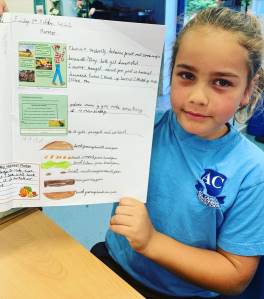
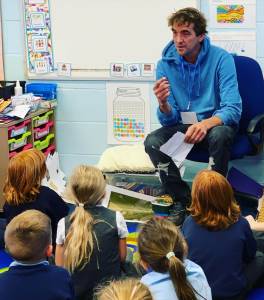
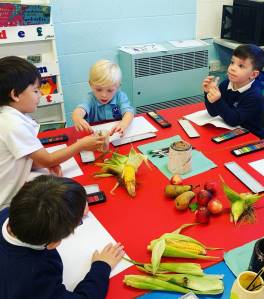
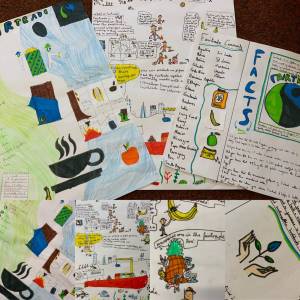
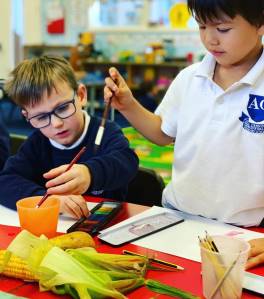
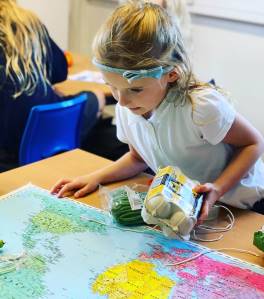
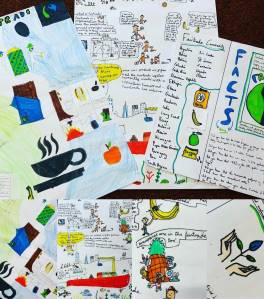
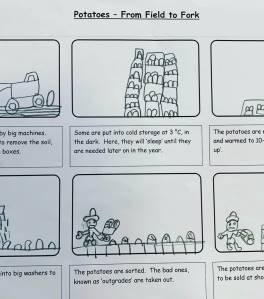
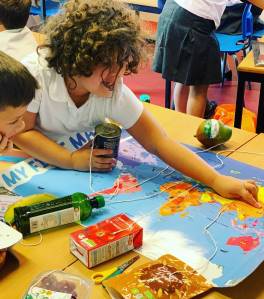
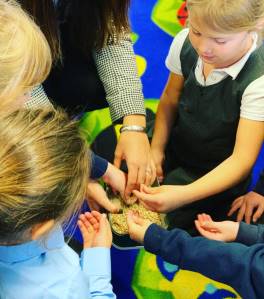
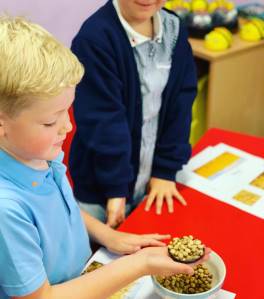
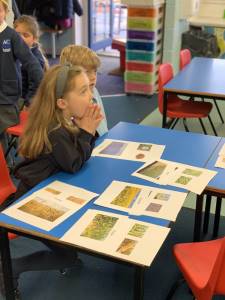
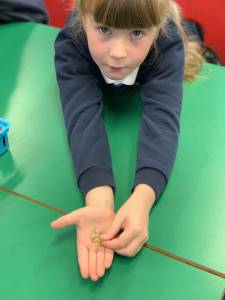
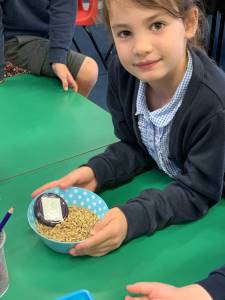
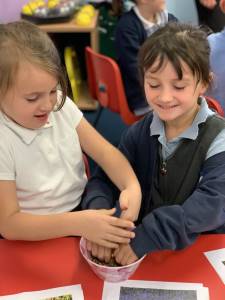
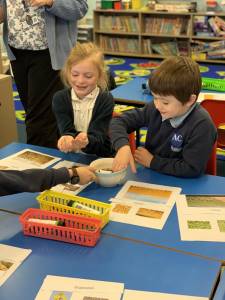
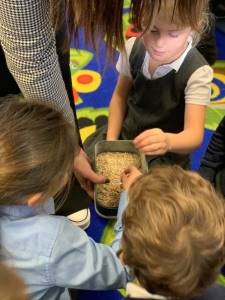
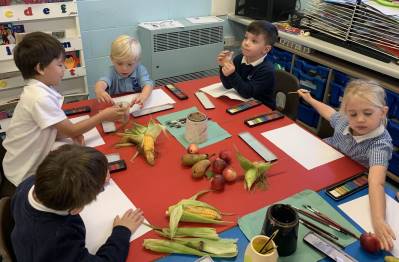
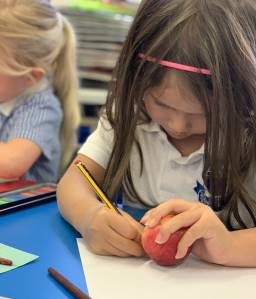
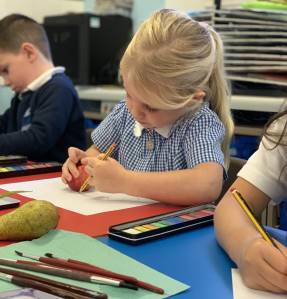
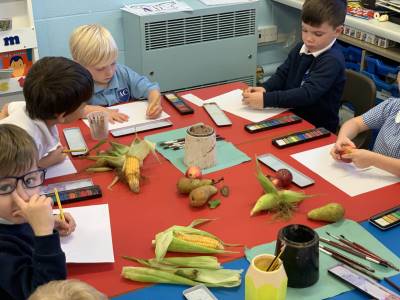
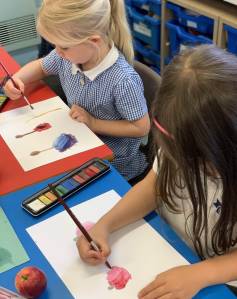
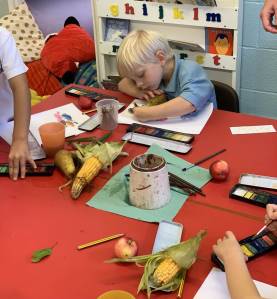
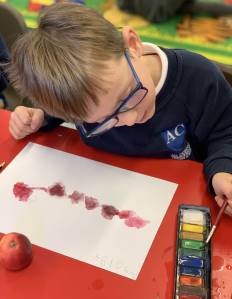
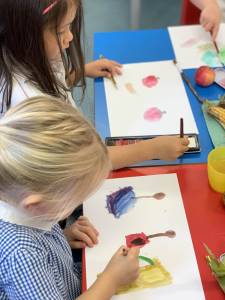
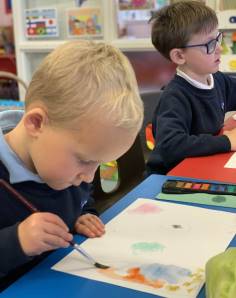
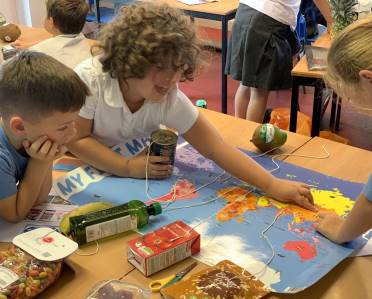
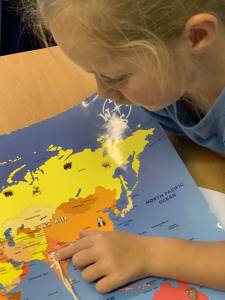
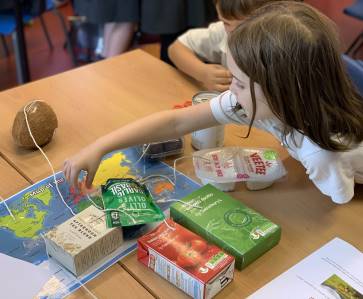
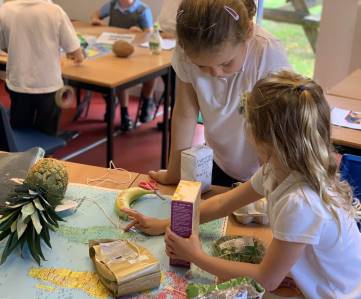
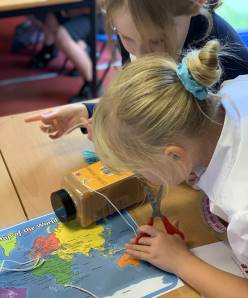
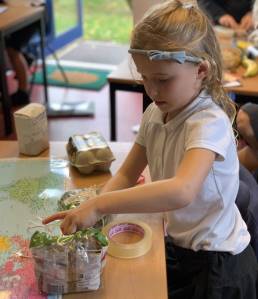
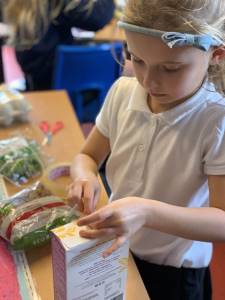
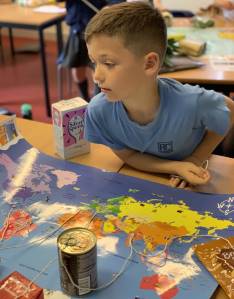
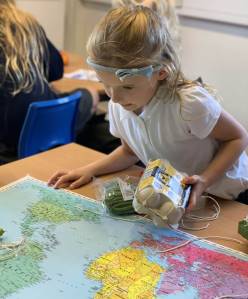
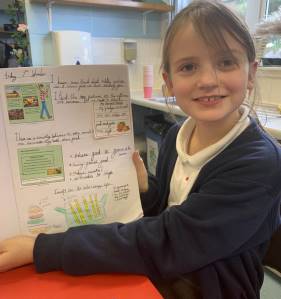
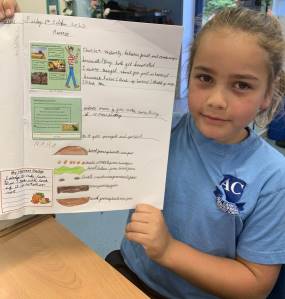
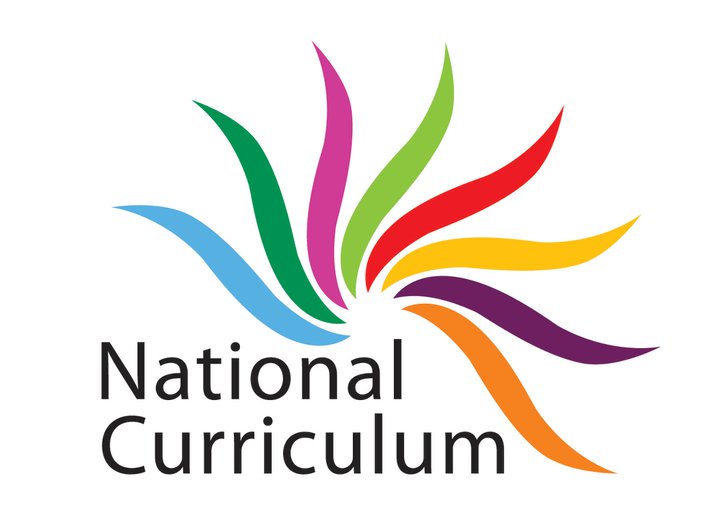
Close